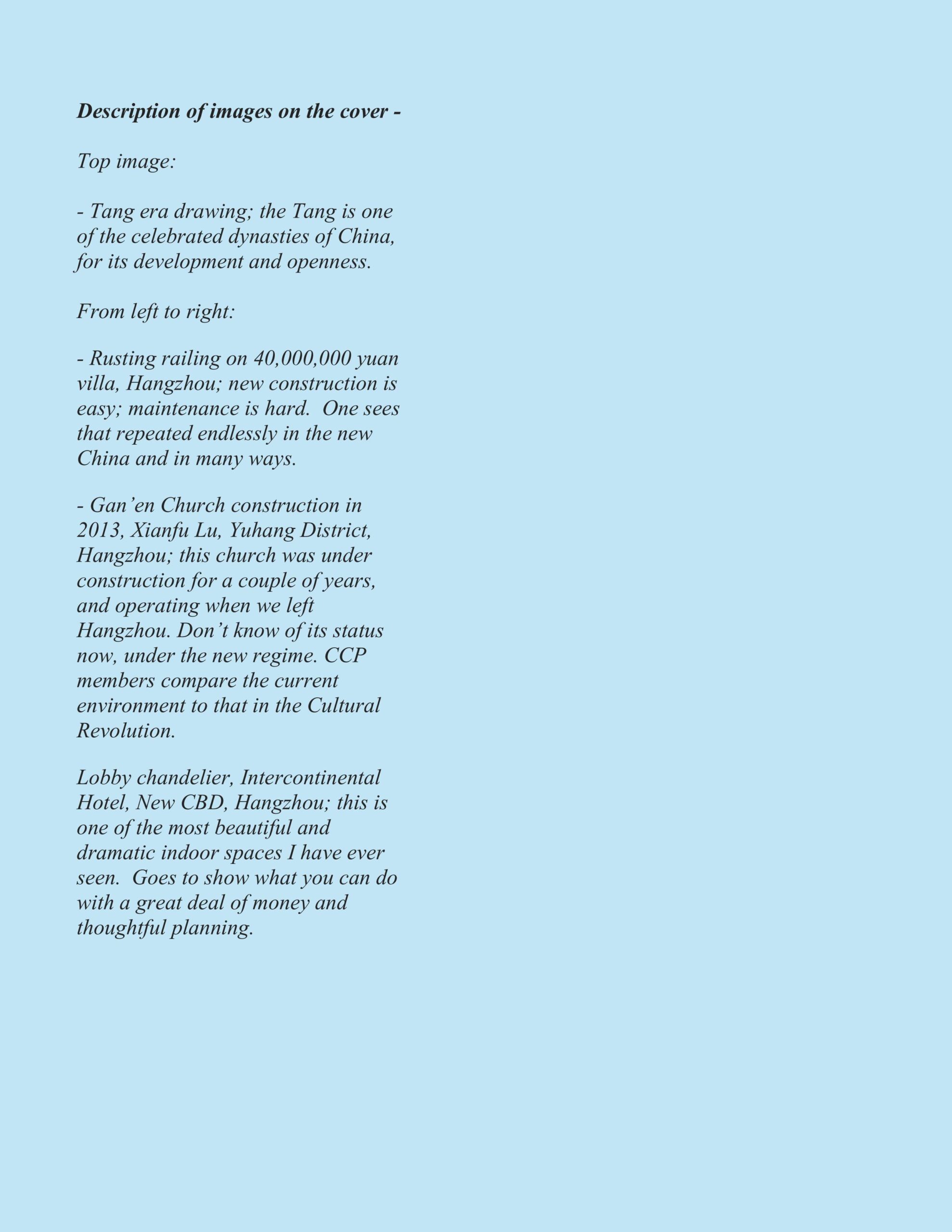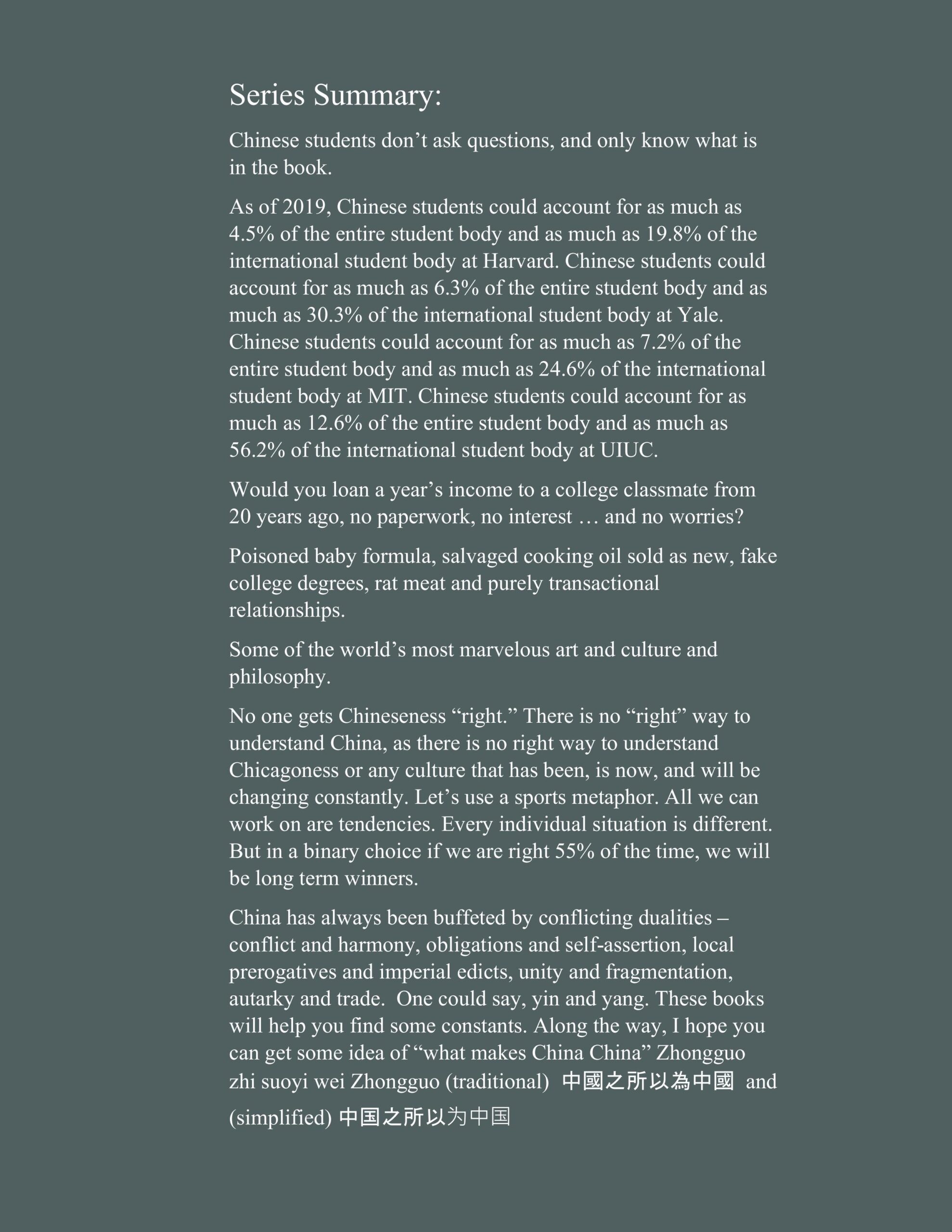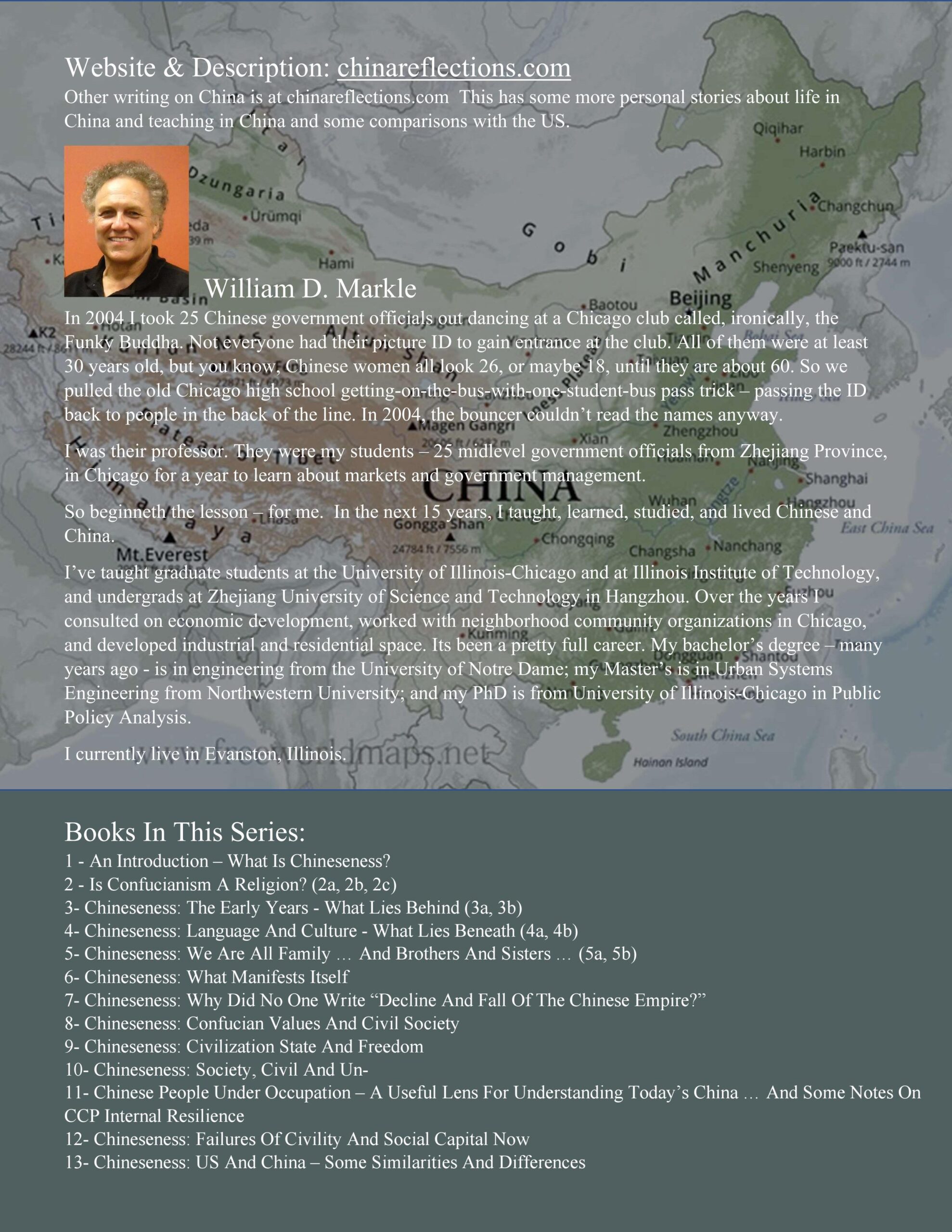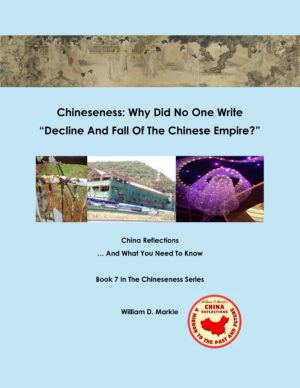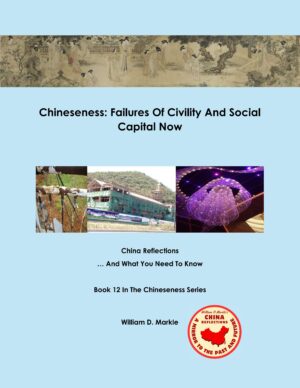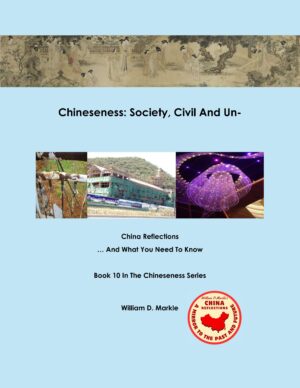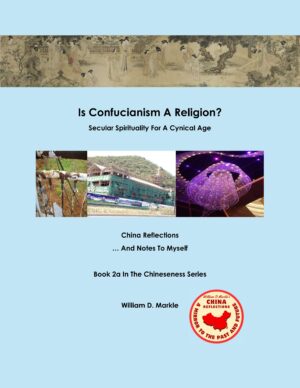Description
No one gets Chineseness “right.” There is no “right” way to understand China, as there is no right way to understand Chicagoness or any culture that has been, is now, and will be changing constantly. Let’s use a sports metaphor. All we can work on are tendencies. Every individual situation is different. But in a binary choice if we are right 55% of the time, we will be long term winners.
China has always been buffeted by conflicting dualities – conflict and harmony, obligations and self-assertion, local prerogatives and imperial edicts, unity and fragmentation, autarky and trade. One could say, yin and yang. These books will help you find some constants. Along the way, I hope you can get some idea of “what makes China China” Zhongguo suoyi wei Zhongguo 中国 所以為中国.
This book 1 contains references to Chinese and non-Chinese thinkers who have also explored the Chineseness idea.
This really is an introduction to the following books, and is offered without charge. I have kept most books short, around a hundred pages, plus or minus.
To start –
… Through a glass, darkly … Heaven and the Yellow Emperor ….
“If we were to characterize in one word the Chinese way of life for the last two thousand years, the word would be ‘Confucian.’ No other individual in Chinese history has so deeply influenced the life and thought of his people, as a transmitter, teacher and creative interpreter of the ancient culture and literature and as a moulder of the Chinese mind and character.”
Wm. Theodore de Bary, The Trouble With Confucianism. Harvard University Press, 1996
What Chinese people worship is the family and clan, so China only adheres to the doctrines of family and clan, not to the state-nation. Foreign observers say that Chinese are a sheet of loose sand yipan sansha 一 盘散沙
Sun Yat-sen (Sun Yixian, Sun Zhongshan) speech on the Three Principles of the People, 1924


